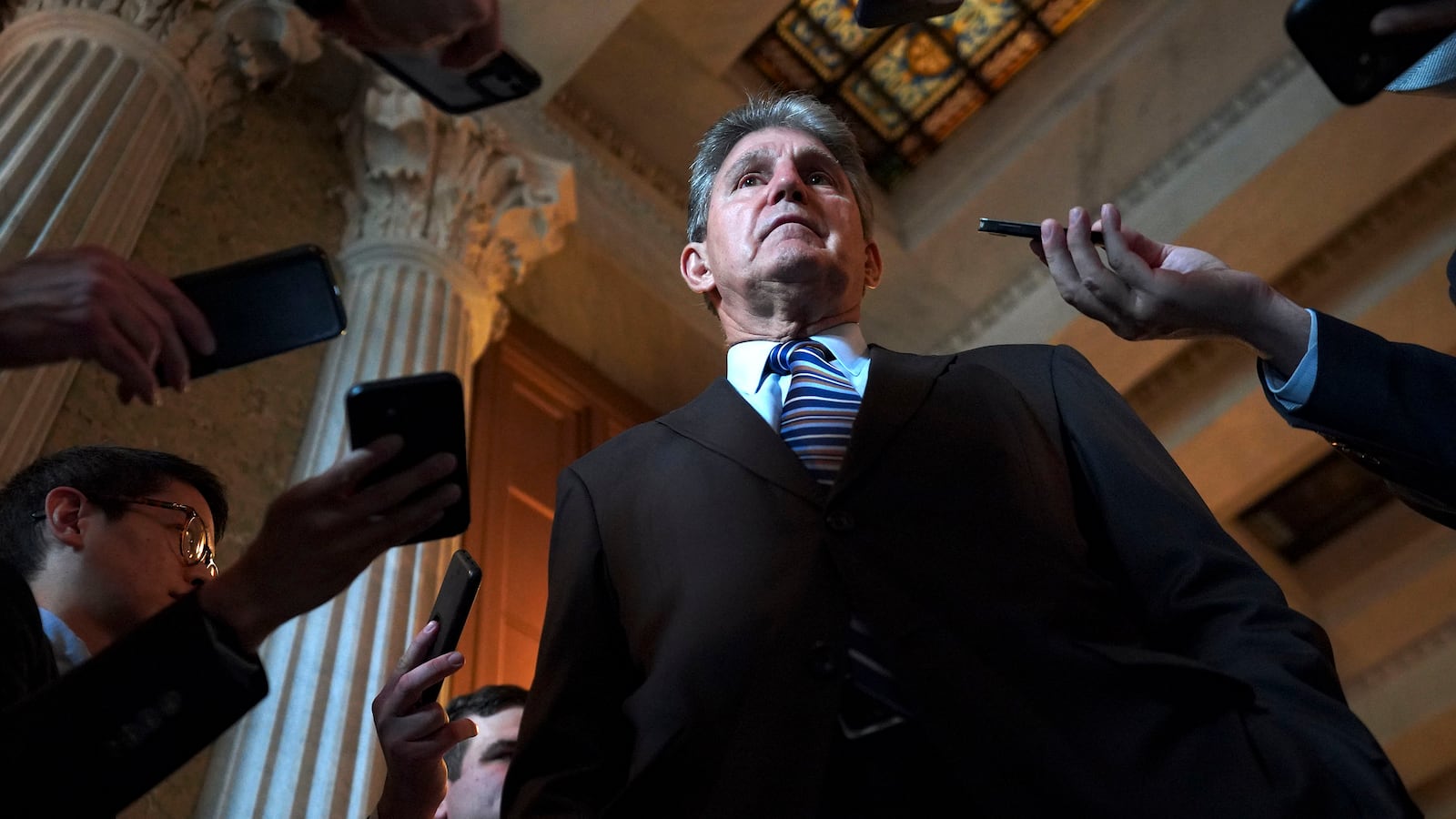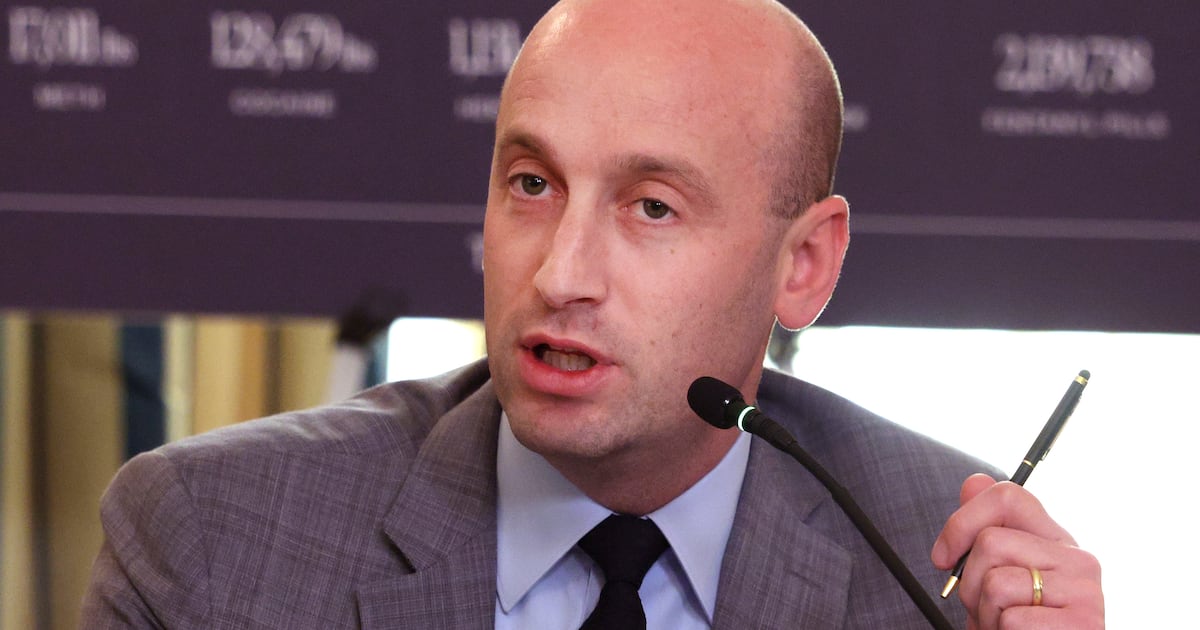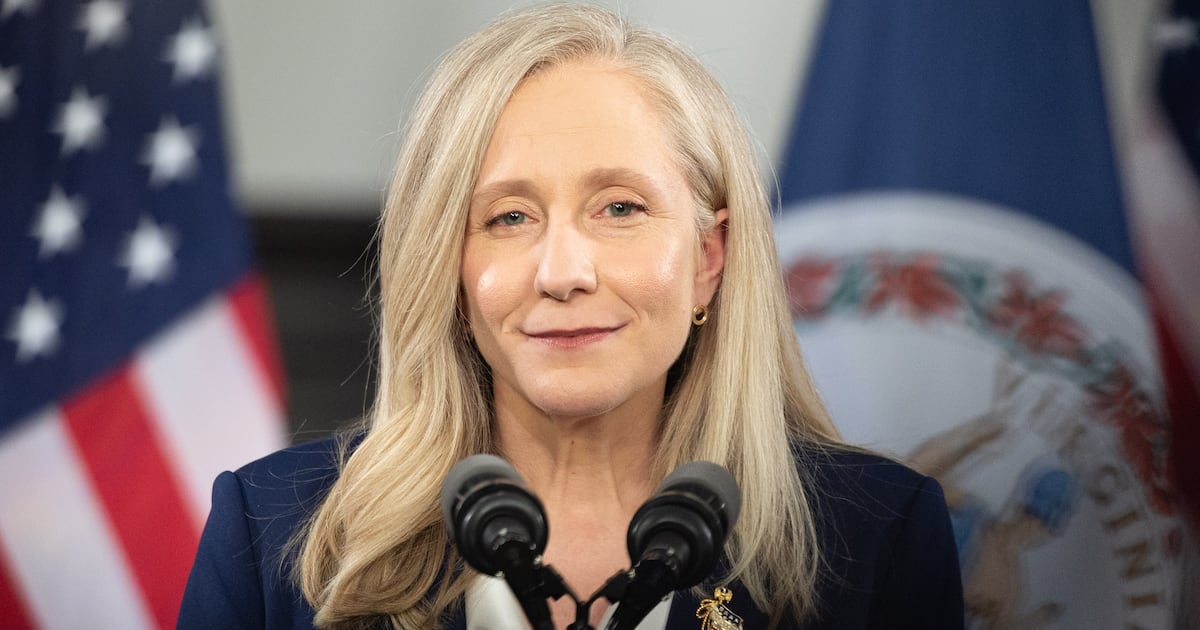When the Jan. 6 commission became the latest casualty of Republican obstructionism on Friday, most Democrats weren’t surprised. Joe Manchin was.
Manchin, West Virginia’s senior senator and the only Democrat in Congress from a state Donald Trump won by 40 points, has not been convinced that the GOP’s current strategy is scorched-earth partisan politics.
Ahead of Friday’s vote, as Republican opposition to the insurrection commission solidified, Manchin issued a call “imploring” his colleagues to consider passing the legislation. He said he couldn’t imagine why Sen. Mitch McConnell’s conference would block a bipartisan effort to get to the bottom of the attack on the Capitol.
“There is no excuse for any Republican to vote against this commission,” he said, “since Democrats have agreed to everything they asked for.”
That argument was a pitch-perfect distillation of how Manchin views the Senate. How it was received—with just six Republicans voting for the commission—would perhaps indicate to a more mutable senator that his view may be out of step with reality and necessitate eliminating the filibuster, the 60-vote threshold for passing bills.
But not for Manchin.
“I don’t think I’ll ever change,” Manchin told reporters on Thursday. “I’m not separating our country, OK?”
Manchin said later in the day that he thought Democrats could find “10 good people” on the GOP side to support the commission. And on Friday, after Democrats predictably did not find 10 Republicans to support the commission, Manchin sounded genuinely upset and surprised that his GOP colleagues would side with a nakedly partisan view that there shouldn’t be an independent report on the Jan. 6 attack.
"This job's not worth it to me to sell my soul,” Manchin told reporters on Friday. “What are you gonna do, vote me out? That's not a bad option—I get to go home."
On nearly everything of consequence on Capitol Hill these days, Manchin finds himself right where he likes it: at the center of attention and the Senate’s political spectrum. With the chamber split 50-50, Manchin is, and will be, the deciding Democratic vote to pass the central items of President Joe Biden’s agenda. He has the power to freeze the Senate floor for hours if he has a problem with language in a bill. And he has a special ability among his colleagues to broker compromises on an array of issues.
But when it comes to tackling the most high-profile issues, Manchin might be occupying a different political reality than his colleagues. Ask Democratic senators whether Manchin’s notion of bipartisan dealmaking on the thorniest issues is possible and they’ll give some diplomatic answers. They take care to avoid criticizing Manchin, but gently suggest he is wasting his time.
Take voting rights legislation, which is of existential importance to Democrats in 2021. Manchin opposes the For The People Act, Democrats’ marquee voting bill. In May, however, he and Sen. Lisa Murkowski (R-AK) announced they’d push to pass another top priority for Democrats, a voting rights expansion bill named for John Lewis, on a bipartisan basis.
Republicans, egged on by former President Trump, are poised to put up near-uniform opposition to these bills. Democrats question how Manchin’s push can possibly succeed.
“None of this happens if we’re going to engage in magical thinking and believe that the institutional position of the Republican Party is not to systematically disenfranchise as many voters as they can find,” said Sen. Brian Schatz (D-HI). To think there would be 10 votes for the John Lewis bill, he said, “strikes me as about 10 miles short of realistic.”
Even GOP senators openly say there’s no compromising on it. “I wouldn't shortchange him at all,” Sen. John Cornyn (R-TX) said of Manchin, “but some of these things are clearly ideological, and so they're really not subject to negotiation.”
Asked by The Daily Beast last week how he’d win the votes to pass the John Lewis bill while maintaining the filibuster, Manchin didn’t discuss policy specifics. He just said he’d get it done.
“We just keep working,” Manchin said, listing a set of issues that the Senate is tackling. “I have to say, keep the faith in this damn Senate, and we’ll make it, we’ll work it out, make it bipartisan.”
In the eyes of his allies, if anyone can do it, it’s Manchin. “You can never get anything accomplished unless you're talking,” Sen. Jon Tester (D-MT) told The Daily Beast. “Joe's good at talking. So there's always a chance.”
Others are less sanguine. “He’s chasing the art of the deal,” said James Manley, a former top aide to Harry Reid, the former longtime Senate Democratic leader. “Comments like this on the Voting Rights Act indicate he’s somewhat clueless about what’s going on around him. There aren’t gonna be 10 Republican votes—he can keep on saying it until the cows come home, but it’s not gonna happen.”
The thing, say those who know Manchin, is that he doesn’t care about that criticism. “Joe Manchin doesn’t give a fuck about progressive backlash or caucus politics,” said someone familiar with Manchin’s thinking. “Just West Virginia.”
That the fate of any one bill, and the entire Democratic agenda, hinges on this guy is either poetic, amusing, infuriating, or all of the above, depending on who in Washington you ask.
Manchin is not known as a policy wonk. But his knowledge of his home state’s people and issues is encyclopedic. He’s a classic backslapper with a talent for interpersonal politics, but he’s also got an idiosyncratic streak.
The former West Virginia governor, first elected to the Senate in 2010, lives on a houseboat anchored in the Potomac River when he’s in D.C. It’s been the scene for his legendary get-togethers, fueled by wine and pizza. Manchin was notorious for feeding U.S. senators $7.99 pies from the nearby Harris Teeter supermarket, but he’s recently upgraded to serving slices from Capitol Hill restaurant Nostra Cucina.
Without fail, at any Manchin gathering, he will blast his de facto anthem: “S.O.B.,” by Nathaniel Rateliff and the Night Sweats, an upbeat stomp and holler number with lyrics about the struggles of quitting drinking. But Manchin loves the song’s rollicking chorus, which starts with “Son of a bitch, give me a drink!”
(Manchin has been known to offer senators moonshine from a mason jar during bipartisan legislative negotiations.)
The senator is also a notorious clean freak who is obsessed with the state of the carpets in his Senate office, a product of his younger years doing work for his father, who owned a furniture store. He’s known to break out a Dustbuster himself if he sees something he doesn’t like.

Joe Manchin is flanked his wife Gayle as he is sworn in by Vice President Mike Pence on Jan. 3, 2019.
Alex Edelman/AFP via GettyAlongside Manchin’s man-of-the-people tendencies, however, are the trappings of power and influence. His wife, Gayle Conelly Manchin, was the former president of the state’s board of education. In April, she was nominated by Biden to co-chair the Appalachian Regional Commission, an influential federal board that directs federal economic programs in 13 states, including West Virginia. The Senate confirmed her in May.
Manchin’s daughter, Heather Bresch, is the former CEO of pharmaceutical giant Mylan, manufacturer of the EpiPen. In 2016, the company came under fire for jacking up the prices of the life-saving allergy intervention drug after securing a near-monopoly on the market. In a hearing that year with Bresch, Manchin’s House colleagues lined up to bash his daughter’s leadership. Then-Rep. Tammy Duckworth (D-IL), now serving with Manchin in the Senate, went after Bresch and Mylan particularly hard.
These days, Manchin has some unusual friendships, fitting his place in the political middle. He is said to be tight with an ideological opposite in the Democratic Party, Sen. Elizabeth Warren (D-MA), who he sat next to during sessions of the Senate Banking Committee. Republicans like him, too, and respect his role as the Senate’s kingmaker. “Joe wears the role well, because he’s such an affable guy,” said Sen. Kevin Cramer (R-ND). “He has the natural gifts to do it well, and I think he has the right heart.”
Among many Democrats, there’s long been a resigned acceptance of Manchin’s place at center stage. Most know that the popular former governor is the only Democrat who could hold this seat, which is a big reason why they are in the majority, and reason enough to give him his space. They chuckle when Manchin is tailed by packs of reporters on his way to the Senate floor; they’re less amused when he votes with the GOP, like he did often during the last four years when he voted to confirm much of Donald Trump’s cabinet.
Indeed, the Manchin grievances can sometimes run long among Democratic lawmakers and aides. He has something close to veto power over the party’s agenda, and he is not afraid to use it. As Democrats closed in on passing their $1.9 trillion COVID bill on a party-line vote in February, Manchin took issue with some language last-minute. The Senate floor froze for nearly 12 hours as party leaders, including President Biden himself, worked him for the deciding vote.
Manchin’s detractors think he just likes the attention. Even his longtime allies acknowledge that he enjoys being at the center of it all. “He was a quarterback,” said Nick Casey, a former chair of the state Democratic Party who has known Manchin for 40 years. “Yes, he likes the spotlight.”
House Budget Chairman John Yarmuth (D-KY) tweeted on Thursday about his frustration with Manchin’s central role in lawmaking. “Joe Manchin deserves a seat at the table, but no one Senator should decide what all of America eats,” Yarmuth said. “That means being ready to ditch the filibuster or use reconciliation if needed.”
Yet, there’s a sense among Democrats that when Manchin speaks, he’s not only speaking for himself—he’s speaking for a broader cohort of senators who share his views but not his love of the spotlight or tolerance for scrutiny.
For many observers, the proof was in the vote on raising the federal minimum wage to $15 as part of the COVID relief package. Ahead of the vote, much of the heat had focused on Manchin, with press hounding him daily over what figures he’d support; news articles trumpeted him as the “toughest foe” for those aiming to raise the wage to $15. Ultimately, though, Manchin was just one of eight Senate Democrats to vote against the proposal.
“A lot of members are happy Joe Manchin is the tip of the spear, getting shot at every day,” a Democratic aide told The Daily Beast. “Seven or eight of them stand behind him.”
The West Virginia senator also has reason to believe bipartisanship, at least in some areas, is possible—he has a pretty good record of it himself. Late last year, when talks over a second big COVID relief package had stalled, Manchin spearheaded a push with Sens. Susan Collins (R-ME) and Mitt Romney (R-UT) to jumpstart it, resulting in a $900 billion package that passed in December.
And Manchin has firsthand experience compromising with the man Democrats blame for killing the Senate. McConnell had formerly opposed a proposal, championed by Manchin, to bail out 100,000 miners’ pensions using federal funds. In 2019, after significant cajoling from Manchin and others, the Republican leader got on board, and the legislation passed.
Such issues are thorny, no doubt, and that track record is why Republicans like Cornyn call Manchin “the indispensable man” when it comes to dealmaking.
But Manchin remains one of the few Democrats who believes that such an approach is applicable anywhere, on any issue. His Democratic colleagues may be trying to disabuse him of that notion.
“It’s never a waste of time to talk to our colleagues,” Warren, who is close with Manchin, told The Daily Beast in a brief interview last week. “But talking to Republicans about voter protection at a time when their leader is adamantly opposed, and when the former president requires loyalty by forcing people to embrace the Big Lie... the odds of success are small enough that we should not use it as an excuse to delay.”
As it relates to Manchin’s stance on the filibuster, Warren pointed to a recent speech from Sen. Raphael Warnock (D-GA), in which he outlined a possible third way: endorsing a filibuster exception on matters of voting rights. Such a triangulation might represent Manchin’s sweet spot. Warren wouldn’t say if he’d made the pitch to him.
Many of Manchin’s colleagues are working him on voting rights legislation, but he still rejects the idea that Republicans just won’t compromise on the issue. “I never feel that,” he told The Daily Beast. “Never felt that at all. That’s not me.”
As long as the Senate is functioning at a baseline level, say those who know him, Manchin cannot be convinced that changing the filibuster will be necessary. “There is a better chance,” said one source familiar with his thinking, “that he quits the Senate.”
And Manchin pointed to this year’s relatively productive Senate to make his case that all is well. “Some of my colleagues believe nothing will pass without it, and we’re showing it’s wrong,” he told The Daily Beast. “We’ve done a hate crimes bill, we’re going to do Endless Frontier. We’re doing things. Things are happening.”
But one of Manchin’s examples—Endless Frontier, an overwhelmingly bipartisan package to make massive investments in U.S. competitiveness toward China—teetered on the brink of collapse on Friday after a group of Republicans balked at the process, sending the chamber into chaos. And a bipartisan deal on the Jan. 6 commission, as well as a massive infrastructure deal, appear far from materializing.
It doesn’t seem like it will change Manchin’s mind. The senator’s confidantes say he has a short memory for such things.
“If they do something outrageously not bipartisan,” said Nick Casey, his longtime friend, “I’d expect a certain reaction with Sen. Manchin. It doesn’t mean he isn't willing to have a bipartisan conversation 12 seconds later.”







